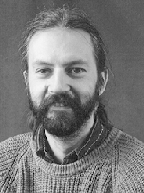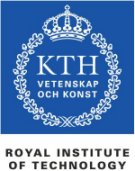 |
14.00. Context and Prosody in the Interpretation of Cue Phrases in Dialogue
Julia Hirschberg, Columbia University and KTH |
Cue phrases (ambiguous terms like ‘okay’ and ‘yeah’) represent a challenging problem for spoken dialog systems, which must recognize when these very frequent items should be interpreted as affirmation, agreement, a backchannel, a topic shift, or something else. We will describe the effect of contextual and acoustic cues in the disambiguation of three discourse-pragmatic functions of the word 'okay'. Results of a perception study based on tokens from the Columbia Games Corpus show that contextual cues are stronger predictors of discourse function than acoustic cues. However, acoustic features capturing the pitch excursion at the right edge of 'okay' are also important in disambiguation, whether other contextual cues are present or not. We will also discuss ongoing research on the same corpus, including studies of turn-taking cues, backchannels, and lexical and acoustic-prosodic entrainment.
|
 |
|
Dialog systems for the most part deal with interactions between a single human and a (single) computer, in the context of a well-specified domain (such as schedule information). We have begun to study language-based interactions in multi-agent domains that feature multiple robots and (eventually) multiple humans cooperatively pursuing a common goal, such as searching an area for target objects (e.g., "treasure" or injured humans). A team-based search task presents issues in multi-participant dialogue (for example, agreement on who has the floor) and in grounding (where humans and robots need to agree on features of the environment being explored). This talk will provide an overview of our work.
|
 |
16.00. Towards the conversational computer
Rolf Carlson, Jens Edlund, Joakim Gustafson and Anna Hjalmarsson ,CTT, KTH |
|
In our contribution we will give some examples of our current research at CTT on conversational systems. We will discuss how models built on human-human interaction can be used in spoken dialog systems. This includes studies on spontaneous conversation and developments of new methods to handle human-like turn-taking and utterance generation. We will also demonstrate some current applications including Nailon, a model for interaction control, and the DEAL conversational training tool for second language learning.
|



